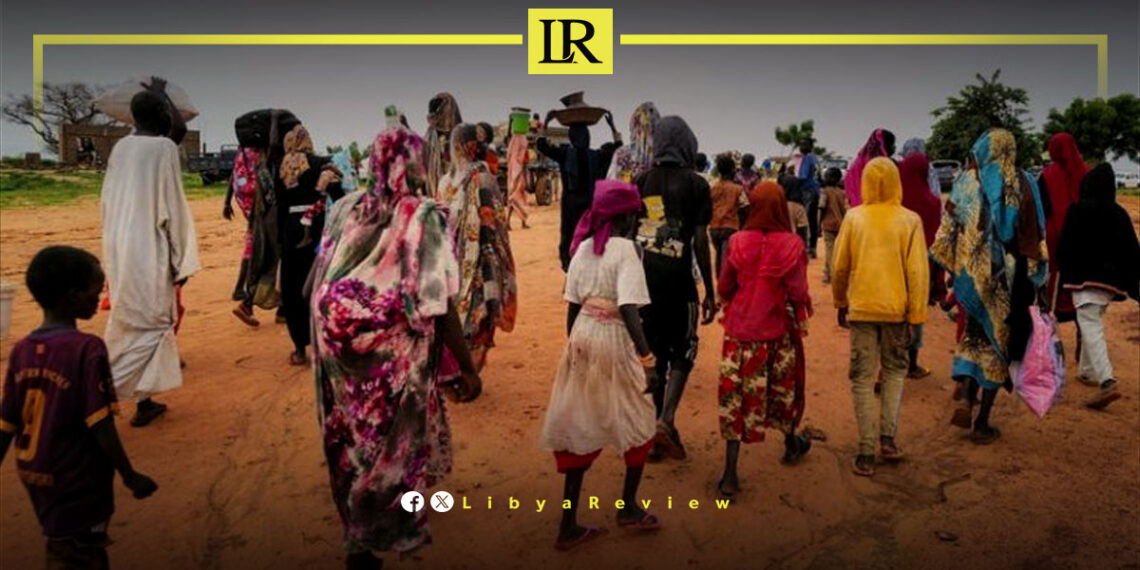The International Organization for Migration (IOM) has warned of a growing humanitarian crisis in Libya after revealing that more than 44,000 Sudanese migrants crossed into the country during the first half of 2025.
According to the agency, the influx is part of a much larger wave of displacement triggered by Sudan’s civil war, which began in 2023. Since then, around 130,000 Sudanese nationals have fled into Libya, seeking safety from escalating violence in Darfur and other conflict-hit regions. Many of them enter through Libya’s remote southern borders, often after perilous journeys across the desert.
The IOM estimates that more than 280,000 Sudanese migrants are now living in Libya, many of them in extremely precarious conditions. The organization reported that access to basic needs, including shelter, food, clean water, and medical care, is rapidly deteriorating as numbers increase, leaving both migrants and host communities under severe strain.
To respond to the emergency, the IOM has appealed for $3 million in additional funding to sustain its humanitarian operations in Libya. The agency emphasized that without urgent support, thousands of migrants risk falling deeper into vulnerability, particularly as Libya itself remains mired in political instability, economic hardship, and fragile security conditions.
Libya has long been a major transit hub for migrants from sub-Saharan Africa, but the surge in Sudanese arrivals highlights how regional instability is intensifying migration pressures. While some Sudanese intend to settle temporarily in Libya, many hope to continue their journey toward Europe through the Mediterranean, a route that humanitarian groups warn is increasingly dangerous.
Aid organizations have repeatedly criticized the lack of safe migration pathways and warned that migrants in Libya face high risks of trafficking, detention, and exploitation. With the war in Sudan showing no signs of resolution, humanitarian officials expect the number of arrivals in Libya to grow in the coming months, worsening what is already a critical humanitarian situation.


